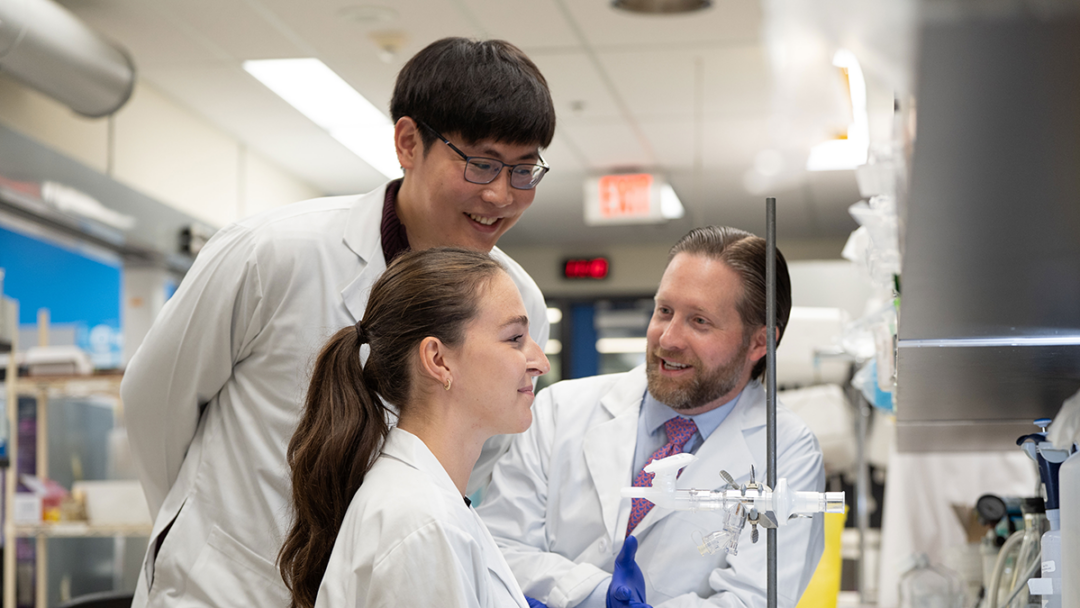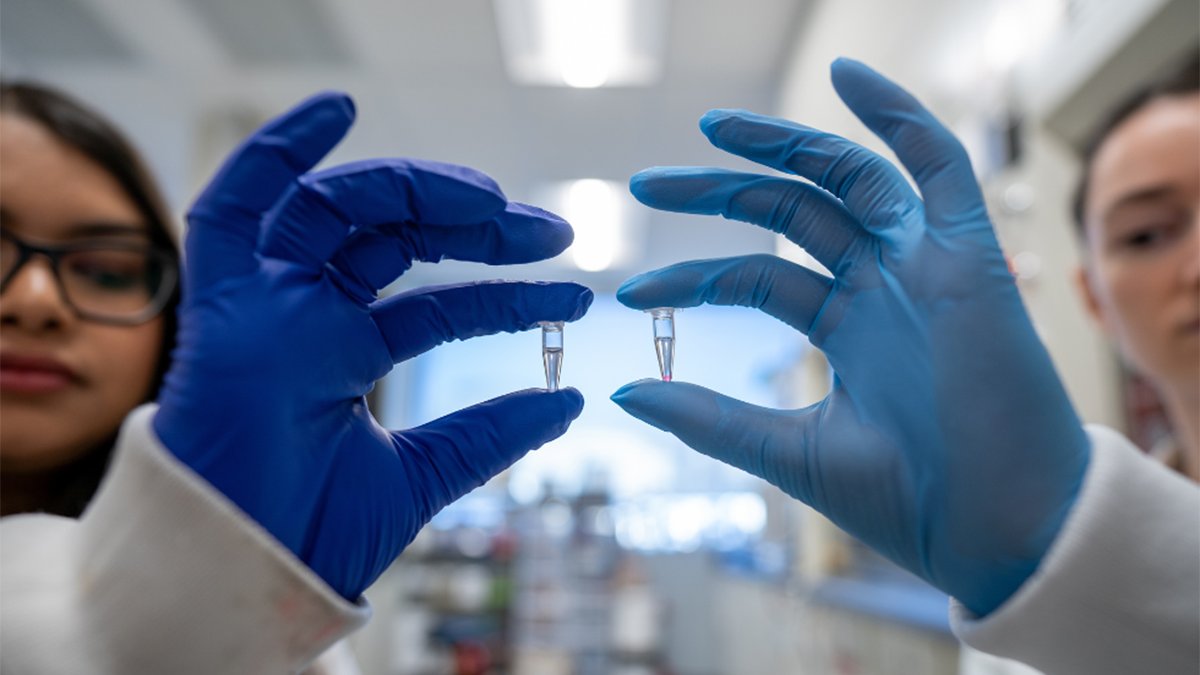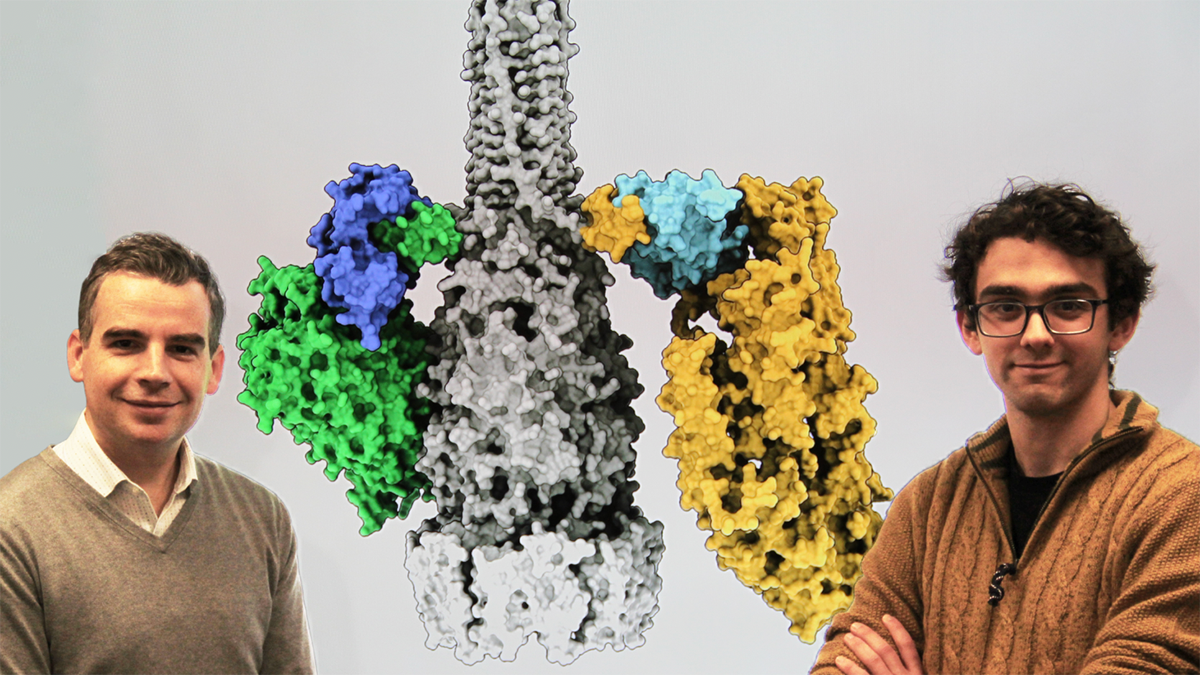McMaster-affiliated non-profit gifts $300,000 to Global Nexus to support pandemic research
By Blake Dillon

McMaster HealthLabs (MHL), a university-affiliated not-for-profit organization, has gifted $300,000 to Global Nexus, a McMaster-based health innovation accelerator.
The gift will establish the McMaster HealthLabs Pandemic Research Fund, aimed at advancing pandemic preparedness initiatives at Global Nexus.
Current pandemic preparedness activities at Global Nexus include biomanufacturing, clinical trials for a new inhaled COVID-19 vaccine, diagnostics research, and AI-guided drug discovery.
Jack Gauldie, Professor Emeritus in McMaster’s Department of Pathology & Molecular Medicine and Chair of the Board at MHL, says investing in such initiatives is a logical way to continue the MHL legacy.
“Gifting these funds to Global Nexus was an easy decision for the board, given the similarities in goals it shares with MHL,” he says. “It makes perfect sense for these funds to continue to support infectious disease research into the future.”
Spun out in the early days of the COVID-19 pandemic, in collaboration with infectious disease research labs and scientists at Hamilton’s St Joseph’s Hospital, MHL provided fast and accurate high-throughput diagnostic testing for SARS-CoV-2, along with associated research services.
MHL supported airlines and airports, multiple homeless shelters and long-term care homes, individual travellers, film production sets, and many others during a time when asymptomatic testing was largely inaccessible to the public.
Gauldie, at the time Vice-President of Research (VPR) at St. Joseph’s, along with several other McMaster faculty members and with input from the McMaster Industry Liaison Office, established the not-for-profit organization in close partnership with McMaster counterpart Karen Mossman, then the VPR at the university.
Mossman, Professor in McMaster’s Department of Medicine and a member of the Michael G. DeGroote Institute for Infectious Disease Research, says “MHL helped keep people safe and the local economy running until rapid tests, vaccinations, and other protective measures eventually became available.”
“We were one of the first groups to provide asymptomatic testing, which provided protection for the vulnerable population; let people safely get back to work, stay active, and travel; and allowed people to live their lives,” she says. “I’m personally very proud of the work that we did with McMaster HealthLabs.”
Today, with less fatal variants of the disease circulating and high rates of vaccination, there is little remaining need for the services MHL once provided. As such, Gauldie and co. have sunset the not-for-profit, with its last official function being this show of support for Global Nexus.
“McMaster HealthLabs is a story of great success, but now it has served its purpose,” says Gauldie. “We helped slow the spread of the disease locally until safe vaccination could take hold and rapid reliable self-test kits became readily available. If we were still needed today, that would actually be a bad thing.”
The gift to Global Nexus was officially announced on National Philanthropy Day, an annual observance that celebrates the impact of charitable activities across the world.
“Philanthropic support is a powerful catalyst for advancing high-impact research,” says Matthew Miller, executive director at Global Nexus. “These funds will allow us to ensure that McMaster discoveries are quickly translated to have real-world impact, keeping the spirit of MHL alive.”
Collaborations & Partnerships, ResearchRelated News
News Listing

Department of Medicine ➚
Pain to progress: An impactful history of lupus research and care at McMaster
Collaborations & Partnerships, Education, Research
December 20, 2024

Brighter World ➚
McMaster research in 2024: From AI innovation to breakthroughs in health care
Research
December 17, 2024

December 17, 2024
